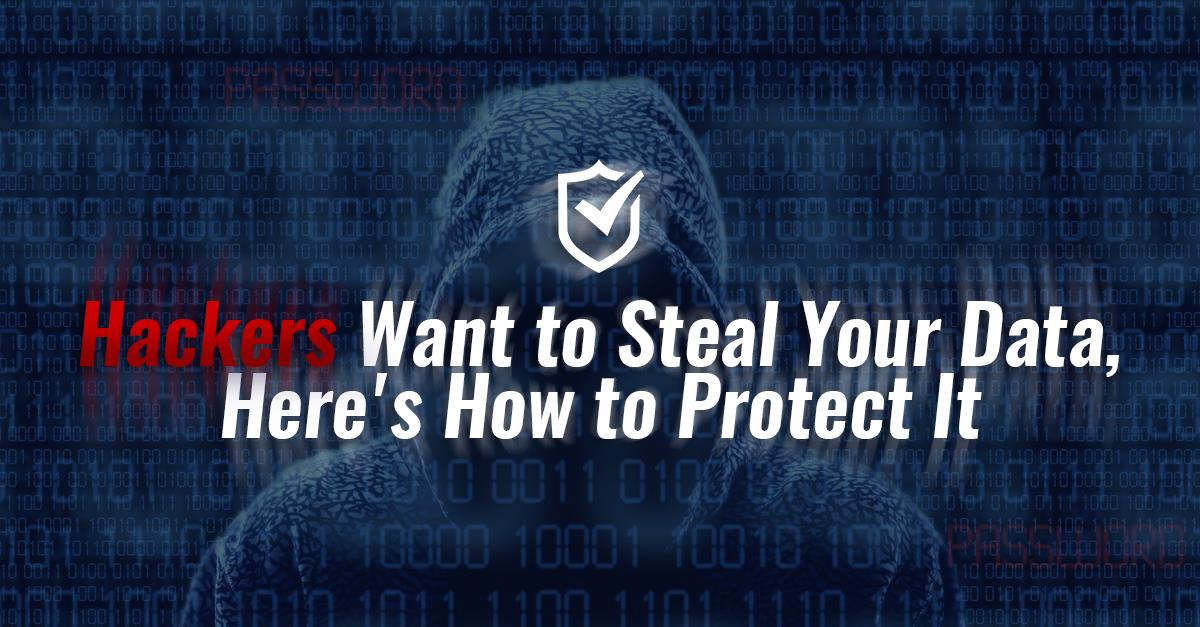5 Effective Tips for Protecting Your Data & Privacy from Hackers
Want to know a secret?
Government surveillance agencies, multi-billion dollar internet companies, digital advertisers, ISPs, as well as hackers are all looking to get their hands on your private data.
And what’s even more worrying is that they don’t want you to be aware of this, they will often offer you valuable ‘free’ products as an attempt to spy on you and collect your data.
Why is that?
It’s simply because your personal data and private information is considered one of the most valuable and expensive commodities on the web.
Sensitive data such as your email address, passwords, credit card details, as well as data related to browsing activities such as your interests, articles you’ve read, posts you have shared, products you have bought, etc — can all be exceptionally valuable for a lot of people.
… And it can be used in many ways, internet companies can sell it to advertisers to show you targeted ads, data brokers and third-party companies are also in the business of data harvesting, hackers and cybercriminals may sell or use your data to ruin your digital life (literally), and so on.
Which is why you should look into ways to protect your personal data at all costs, so here are 5 simple and practical tips that you can use right now to instantly enhance your online security and protect your private data.
1. Two-factor authentication
Do you think an email address and a strong password is enough to protect and secure your accounts? Think again.
The days of using a strong, hard-to-guess, random password with a series of weird characters to secure your accounts and evade getting hacked are long gone. Nowadays, even the most novice hacker clearly has access to password cracking tools that can be used to brute force their way into your accounts.
Therefore, securing your accounts with two-factor authentication (2FA) is a great way to provide that extra protection to all your accounts that support this feature. You can simply install Google authenticator, a popular 2FA app to secure your accounts from hackers.
2. Email
According to Statista, there were over 3.7 billion email users in 2017.
Which means most people rely on email for all kinds of purposes, and more often than not, it’s the first thing they look at in the morning. As a result, hackers attempt to spread viruses and scam users through email as it’s relatively an easy way to reach a lot of people.
You should generally avoid visiting your spam inbox, and never click on any suspicious emails. And avoid sharing your sensitive information inside an email. An encrypted email such as ProtonMail may also help secure your information and communication from hackers.
3. Browser tracking
A web browser is your gateway to the internet, it’s a must-have tool used by everyone to access the web, which is why you really need to carefully choose a browser that cares about your privacy and the security of your data.
Related: Which Browser Is the Safest and Most Secure?
As you browse the web, some websites may install numerous tracking cookies on your browser or computer to collect your data and serve you targeted ads. These tracking cookies could learn a lot about you such as your IP address (current location), browsing activities, operating system, and other sensitive information.
If you want to avoid this problem, you can clear cookies each time you use your browser or install a privacy-focused web browser such as the Tor browser to hide your identity and protect your data.
4. Search engine tracking
When you want to look up something online, you will most likely end up using some popular search engine like Google or Yahoo to gain access to web content.
But while you’re there, you should realize that those popular search engines are collecting your search history, websites you visit, keyphrases you search for, and other personal data to sell it to advertisers.
A perfect solution to this is to use a privacy-centric web browser that doesn’t track you — DuckDuckGo is the most popular private browser out there that blocks ad trackers, keeps your history private, and doesn’t track you around the web.
5. Location tracking
Many services and mobile apps nowadays require access to your location before installing or later on when you use the service, avoid using these services or try to keep your location turned off when you’re using them on your mobile device.
Websites or apps can learn a lot about you from your location data, which may result in price discrimination (no discounts), blocked access to region-restricted content (Netflix is known to do this). To effectively avoid this, you can use a VPN software to hide your location data and hide your IP address.

 Follow
Follow